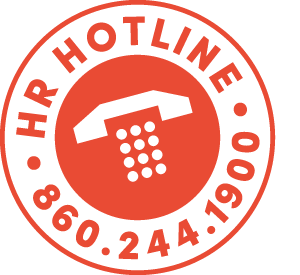HR Hotline: Federal Overtime Rule—What Should We Do Now?

Q: We were all set to change employees’ compensation and recordkeeping requirements to comply with the December 1, 2016, changes to the federal overtime rule when we learned that it was “on hold.” What do we do now?
A: Unfortunately, there are more questions than answers when it comes to the future of the federal overtime rule.

The court ruled that the DOL exceeded its authority under the Fair Labor Standards Act by increasing the salary threshold for exempt status so much that it essentially turned the determination of exempt vs. nonexempt status into a “salary” test—overshadowing the “duties” test, which the court considered to be the essence of the standard embodied in the FLSA.
Possible Scenarios
For now, we are faced with myriad moving parts, and the only certainty is that the final shape and scope of future overtime obligations are likely to remain uncertain for some months to come.
Here are some possible outcomes:
- Since the court case that gave rise to the preliminary injunction is still pending, further proceedings may result in a permanent injunction, effectively killing the regulation.
- President Obama’s Labor Department may appeal the preliminary ruling, and the court may reverse the preliminary injunction, upholding the proposed rule, but with an uncertain effective date. The court could move back the effective date, or the date could revert to Dec. 1. Different federal courts in past overtime disputes arising from legislative or regulatory shifts in the law have issued conflicting opinions on claims for retroactive overtime pay, so no solid reassurances are available here.
- President-elect Trump’s new Secretary of Labor will most certainly adopt a different labor philosophy and enforcement perspective from that of the current secretary, Tom Perez, who has been a strong advocate for the increased overtime earnings the proposed revision would have brought about.
This could lead to the Trump Labor Department withdrawing the changes entirely or going back to the drawing board to create a scaled down proposal with a future implementation date. - Several versions of a legislative solution now before Congress were submitted prior to the presidential and Congressional elections, which dramatically shifted the power structure in Washington. Consequently, the fate of those solutions is now uncertain.
- Keep in mind also that overtime mandates are governed by federal and state law. If the outcome at the federal level, for now, is to uphold existing standards until further notice, the 2017 Connecticut General Assembly may nonetheless enact changes that would mimic in some fashion the derailed federal effort.
What You Should Do
Most employers had prepared employee communications and revised compensation budget scenarios and recordkeeping strategies to comply with the new overtime standard.
Some planned to implement the changes on Dec. 1, some proactively implemented the changes before Dec. 1, and others have taken a wait-and-see approach.
Reversing announced or even delivered salary changes may be legal, but it may not be wise.
Reversing announced or even delivered salary changes may be legal, but it may not be wise.
In most instances compliance with the current law should not be difficult, since any changes implemented in response to the proposed revisions would be above and beyond what the current law requires.
The hard questions are foreseeing where we will land and how best to administer HR and compensation programs in this uncertain and fluid environment.
HR problems? Email or call Mark Soycher at the HR Hotline (860.244.1900 | @HRHotline). Stay abreast of the evolving overtime rule issue and share strategies with peers at CBIA's Jan. 31 2017, HR Council meeting in Hartford. Register here.
RELATED
EXPLORE BY CATEGORY
Stay Connected with CBIA News Digests
The latest news and information delivered directly to your inbox.


